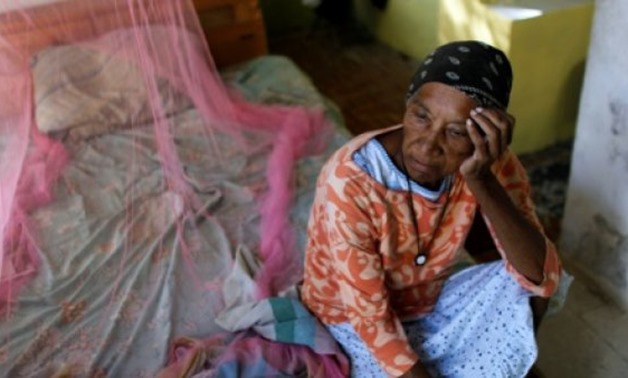
© AFP | Aurea Cruz, 66, sits on her bed inside her house damaged by Hurricane Maria in Vieques, Puerto Rico
SAN JUAN - 18 December 2017: Puerto Rico's governor on Monday ordered a review of all deaths in the US territory since Hurricane Maria, responding to reports that the island's official toll from the devastating storm may vastly undercount the true number of fatalities.
"This is about more than numbers. These are lives: real people, leaving behind loved ones and families," Governor Ricardo Rossello said in a statement.
The category 4 mega-storm roared across the US territory in the Caribbean on September 20 with massive winds of up to 250 kilometers (156 miles) per hour, completely knocking out the power grid and drinking water supplies, toppling houses and businesses and widespread devastation.
But nearly three months after the hurricane, parts of the island are still without power, and that has meant lingering danger for elderly people in nursing homes, for instance, or those on respirators or needing dialysis.
The power grid is operating at only 70 percent capacity, making life miserable for many on the island of 3.4 million people.
The average number of deaths in October, for instance, was way up from the previous year, according to government figures obtained by AFP.
The total was at 2,963, or 606 -- 25.7 percent -- more than the same month in 2016. The same pattern is seen in September figures from one year to the next.
Still, the official death toll from Maria has stood at 64. And the government has defended its counting methods.
- 'More than a number' -
However, broader analyses of health and death records by Puerto Rico's Center for Investigative Journalism, CNN, The New York Times and Vox placed deaths linked to Maria at between 500 and more than 1,000.
These outlets said their numbers stemmed from visits to funeral homes, senior citizens' centers and hospitals, as well as death counts from government statistics agencies.
In his statement, Rossello said his government always expected the storm-related death toll to rise as more factual information came in.
The studies done by the Times and other outlets are statistical in nature, he said.
But he added: "Every life is more than a number, and every death must have a name and vital information attached to it, as well as an accurate accounting of the facts related to their passing."
The official review will look at all deaths on the island since the storm, no matter what the death certificate in each case says, Rossello said.
Demographer and independent consultant Raul Figueroa told AFP recently that "the handling of the death toll has not been the most appropriate. It must be handled by an epidemiologist, accompanied by studies."
"There were doctors who did not have a protocol on how to report the dead so that they in turn could be certified by the government, and there were people overwhelmed by their basic and vital needs who did not report their dead," Figueroa said.


Comments
Leave a Comment